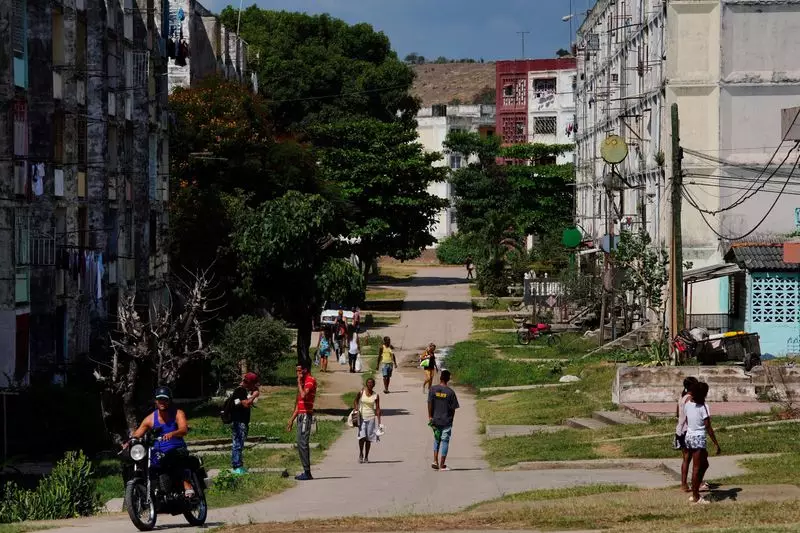Cuban President Miguel Diaz-Canel recently addressed the nation on a mid-day TV newscast, reassuring the population that the government has managed to secure key subsidized food rations. This comes in the wake of protests that erupted just two weeks prior, due to widespread shortages in the country. Diaz-Canel acknowledged the efforts made by the government to ensure food supply for the population of 11 million, claiming that the upcoming months of April and May hold better prospects. He expressed the government’s commitment to guaranteeing the people access to essential foods.
Since Fidel Castro’s revolution in 1959, Cuba has been providing its citizens with a monthly ration of staple foods like rice, beans, sugar, cooking oil, and coffee. However, over the years, these allocations have been reduced due to economic crises leading to shortages and soaring prices. The recent protests were triggered by these shortages, as well as prolonged 10-20 hour blackouts across the country. The demonstrations primarily took place in Santiago de Cuba, a traditional stronghold of government support, as well as in Bayamo and Matanzas.
In response to the protests, the Cuban government swiftly took action to alleviate the situation by increasing electricity generation, effectively minimizing the blackouts that had been affecting the island for months. Oscar Pérez, the vice minister of foreign trade, assured the public in a state-run newscast that basic food items would be guaranteed until June. He specifically mentioned the availability of rice until June, along with efforts to secure wheat flour for bread production and milk for children during the same period. The food ration program in Cuba costs approximately $230 million per month, according to the news broadcast.
Cuba is currently grappling with financial constraints to sustain its social programs, mainly due to stringent U.S. sanctions, an inefficient state-run economy, and a tourism industry struggling to recover from the impacts of the COVID-19 pandemic. Despite the government’s efforts to manage the crisis and ensure food security for its citizens, the broader economic challenges faced by the country continue to pose significant obstacles.
While the recent announcement by President Miguel Diaz-Canel regarding the security of food rations in Cuba may provide temporary relief, the underlying issues of economic instability and external pressures remain daunting. The government’s ability to navigate these challenges and sustain the well-being of its population in the long term will be crucial in determining the country’s future trajectory.

